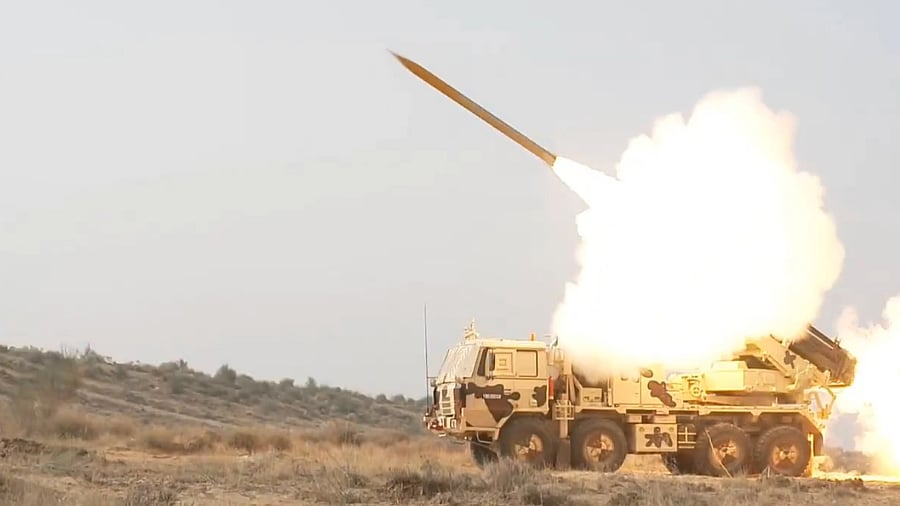
Screengrab from a video shared by Indian Army on X.
Credit: X/@adgpi
New Delhi: The ‘Operation Sindoor’ was designed to be “measured, responsible and designed to be non-escalatory in nature”, but India would “resolutely retaliate” to any misadventure by Pakistan, New Delhi underlined in its outreach to the international community after its armed forces targeted terrorist camps in the areas under the control of its western neighbour.
External Affairs Minister S Jaishankar and National Security Advisor Ajit Doval started reaching out to their respective counterparts around the world soon after the Indian Army and the Indian Air Force carried out the precision strikes early on Wednesday, targeting nine terrorist camps in Pakistan as well as the territory under the control of Pakistan.
Foreign Secretary Vikram Misri briefed the diplomats of 13 of the 15 permanent and non-permanent members of the United Nations Security Council. Though Pakistan is currently a non-permanent member of the Security Council, no representative from its diplomatic mission in India was called for the briefing at the South Block on the Raisina Hills. Sierra Leone, another non-permanent member of the UNSC, does not have a mission in India, and hence could not be invited for the briefing.
Misri told the diplomats representing the UNSC members that India had to launch Operation Sindoor as Pakistan had failed to take any action on the plotters and perpetrators of the recent terrorist attack in J&K. He pointed out that Pakistan shielded The Resistance Front, although the organisation had claimed responsibility for the April 22 attack
New Delhi’s envoys to different foreign capitals also briefed the respective host governments about the ‘Operation Sindoor’, which India launched a fortnight after a gang of Pakistani and Pakistan-trained terrorists killed 26 people – 25 Indians and one Nepalese – at Baisaran near Pahalgam in Jammu and Kashmir on April 22.
Soon after the Indian Army and the Indian Air Force completed the precision strikes at nine terrorist camps across the Line of Control between India and Pakistan, as well as the undisputed stretch of the border between the two nations early on Wednesday, Doval called his United States counterpart, Marco Rubio, and briefed him about the operation.
Doval conveyed to Rubio that India’s actions against terrorist infrastructure in Pakistan and the J&K areas under the control of Pakistan had been focused and precise. “They (the actions) were measured, responsible and designed to be non-escalatory in nature. No Pakistani civilian, economic or military targets have been hit. Only known terror camps were targeted,” the Embassy of India in Washington, D.C., stated in a press release.
He delivered the same message to his other counterparts – Jonathan Powell of the UK, Musaid Al Aiban of Saudi Arabia, Sheikh Tahnoon of the UAE, and Masataka Okano of Japan.
He told his counterparts that India had no intent to escalate but was ready to resolutely retaliate in case of any misadventure by Pakistan.
The same message was also conveyed to Sergei Shoigu, Wang Yi and Emmanuel Bonne, the NSA’s counterparts in Russia, China and France.
Jaishankar spoke to Japanese Foreign Minister Takeshi Iwaya. He also had a conference call with Foreign Minister Jean-Noël Barrot of France and Foreign Minister Johann Wadephul of Germany. “Appreciated their solidarity and support in the wake of the Pahalgam terrorist attack. Discussed ensuring zero tolerance for terrorism,” he wrote on X.
